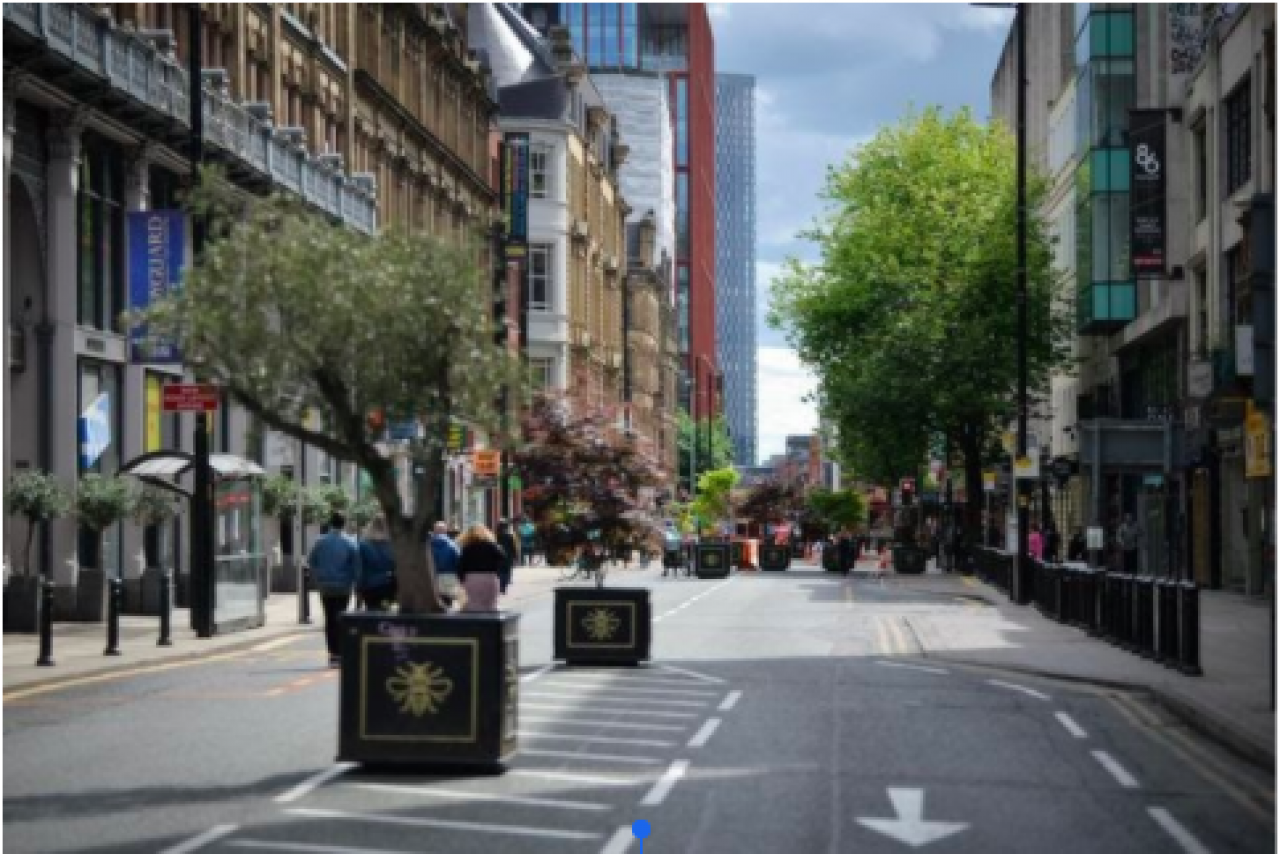
To achieve their Zero Carbon 2038 ambitions, Manchester City Council have looked to reduce short car journeys, specifically within the city centre. Lockdown has provided the impetus to pedestrianise parts of the city centre.
As part of the EU funded Horizon 2020 project, SynchroniCity, Manchester were able to run pilots in Manchester around transport and environment. The pilot, titled ‘Active Travel Insights’ installed 10 counting sensors and an air quality sensor in key areas along Deansgate. Discussions around pedestrianising the road were supported by the data collected through this pilot along with consultations with residents.
During the lockdown, the road was temporarily closed, and after further consultation with residents, in May it was agreed the partial closure would be permanent.
Executive member for the environment, planning and transport, Councillor Angeliki Stogia, said: “When the essential lockdown measures start to be lifted, we need to make sure that there is more space for people to walk in the city centre and busy district centres. That’s why we're planning these changes, which will aid the economy in its recovery, boost air quality and contribute to the city’s ambitious target of becoming zero-carbon by 2038 at the latest.
“As and when lockdown starts to ease, rather than going back to business as usual, we want to work with people who live and work in the city to give them the opportunity to travel more sustainably, enjoying cleaner air and a less congested city.
"Putting these measures in place will help our city's economy not simply to recover, but to prosper. ”
This closure is a small step that reflects the bigger opportunities that lockdown has provided cities to move toward their zero carbon ambitions. Manchester look forward to continuing in this vein.
In July, Manchester City Council committed to Manchester Climate Change Partnership and Agency’s proposal for a green recovery. Not only to ensure that we get on track to meet our climate change commitments, but also to ensure we realise the opportunity to make Manchester a green, healthy, fair, inclusive and socially just city where everybody can thrive.
Manchester’s Climate Change Partnership has identified that transport is responsible for around a quarter of emissions. In order to achieve our ambitions to be Zero Carbon by 2038, using the carbon budgeting methodology that the city has adopted, we need to make year on year reductions - including in high emitting sectors like private transport. The city centre remains key to our economic prosperity, so enabling further pedestrianisation, discourages drivers from unnecessary journeys and increases the liveability of the city centre.
